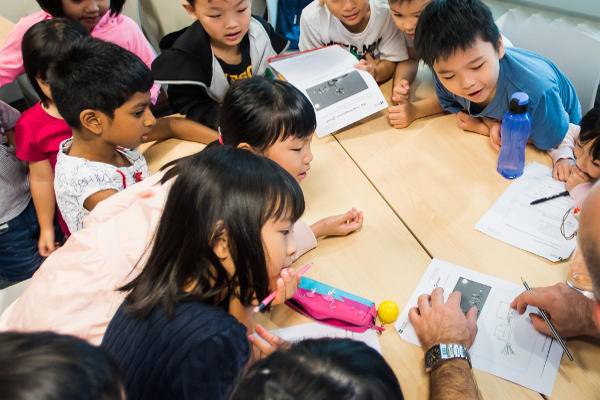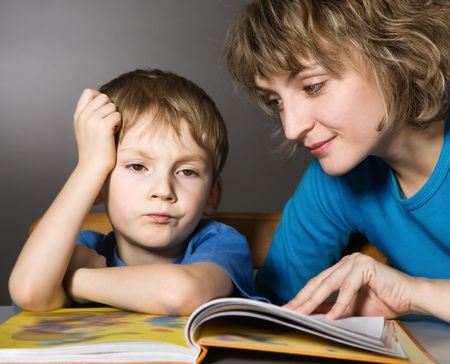“He just doesn’t like to read.”
From an educator’s experience, this is rarely the case.
Most of the time, children don’t have good reading habits. Success depends on changing routines.
What better time than now to get your child reading regularly?
How to Boost Your Child’s Love for Reading
1. I read, you read
For better or worse, our children watch us and copy our behaviour. Parents encourage positive eating habits by eating healthily themselves. The command of “eat your vegetables” sends out a confusing message, if your own greens are untouched.
Reading is the same. If we are seen to value reading by doing it, we are more likely to instil the habit. Pick up a book and set the tone for your child.
For maximum impact, a good book with a side of broccoli in full view of the family is recommended.
2. Routinize your reading
Consider the amount of brand new lycra and red faces currently doing laps of the Botanic Gardens. These people are trying to change their exercise habits this year. Depressingly, most will fail.
Simply adding exercise to already busy lives leads to overload. There are, after all, only so many hours in the day.
If your child isn’t reading, make sure they actually have time to do it. This means sacrificing something else.
At the British Council, all our Primary lessons begin with dedicated quiet reading time to help support regular, routinized reading. I think I can comfortably assert that students and teachers both definitely prefer this to a red-faced, sweaty run in the park.
3. Never stop the stories
It’s a sad day when your child is too big (or too heavy) to put on your knee and read stories with.
The look of wonder when they turn over to the next picture and begin to pick out their first words is truly a magical moment.
Books can continue to inspire throughout our lives but we tend to stop reading with our children the moment they begin to show signs of independent reading.
Yet really, they are still just getting started. The issue of ‘not liking reading’ is often connected with finding reading tiring – think about our red-faced joggers struggling to complete their first 5 km in years.
Continuing to read with them takes some of the load and makes the story more satisfying.
Finally, there are benefits to busy mums and dads too. For example, I’m willing to bet you will have forgotten just how good Charlie and the Chocolate Factory is, and how well it can distract you from work, the boss and life in general.
Twenty regular minutes of escapism can be good for everyone.
4. What are the Joneses reading?
Ever been met with the justification for (usually bad) behaviour that starts “Ryan, did it, so I did it too”?
As adults, we are powerful influencers on our children, but their peers have a role too.
Most reading takes place alone at home, so kids aren’t necessarily aware of what their friends and wider peer group are looking at.
Speaking to other parents about what their children have read and enjoyed comes with the added advantage of peer power – “Natalie, read this and thought it was great”. Often we see our students wanting to borrow books that their classmates have enjoyed.
5. Fact or fiction
Some students prefer fiction, others prefer non-fiction. Ideally, they would like both but importantly; it is unlikely they will like neither.
There is a book for everyone.
Many of British Council’s Primary courses have a mixture of narrative and factual texts for this reason and we find that the factual books we lend weekly to students are as popular as the stories.
Just remember, reading the often more technical language of non-fiction, does need support from parents and teachers. See Point #3 on never stop the stories.
Those who read regularly do better in school.
Instilling good and sustainable reading habits is about changing routines and showing that reading is valued.
By Charlie Spiller, Head, Primary Courses at British Council.
British Council Primary courses focus on developing strong reading skills at lower primary, which will prepare students well for the increasing challenges of the language in upper primary and the PSLE English.
* * * * *
Like what you see here? Get parenting tips and stories straight to your inbox! Join our mailing list here.
Want to be heard 👂 and seen 👀 by over 100,000 parents in Singapore? We can help! Leave your contact here and we’ll be in touch.
























































Leave a Comment: